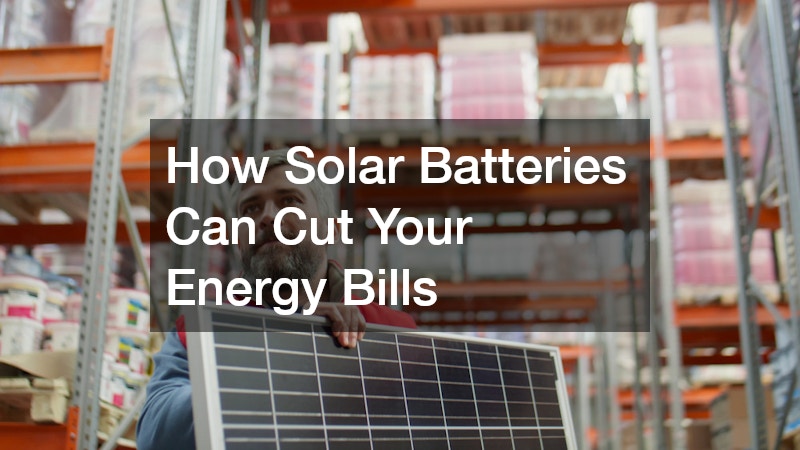As Australia continues to embrace sustainable energy solutions, solar panels have emerged as a leading choice for homeowners aiming to reduce both their carbon footprint and electricity bills. With energy costs on the rise and environmental awareness at an all-time high, many property owners are turning to solar energy as a practical investment.
However, beyond the obvious environmental and financial benefits, a growing question among homeowners is whether installing solar panels can actually increase the value of their home. The answer, supported by research and market trends, points strongly toward ‘yes’—and for good reason.
The Value of Energy Efficiency in the Real Estate Market
Today’s homebuyers are more informed and sustainability-minded than ever before. Energy efficiency has become a significant factor in property selection, and homes that offer reduced running costs are often viewed more favourably. A house equipped with solar panels can be particularly attractive to buyers who are conscious of electricity prices and long-term savings. These properties tend to sell faster and for higher prices compared to similar homes without solar systems.
Australian real estate data supports this trend. According to studies from leading property analysts, homes with solar installations can see a noticeable increase in sale price, sometimes by tens of thousands of dollars depending on the system size, age, and location of the property. Buyers are willing to pay a premium for homes that promise lower power bills and a smaller environmental impact. As the demand for energy-efficient homes continues to grow, the presence of solar technology becomes a distinguishing feature in a competitive market.
How Solar Panels Add Perceived & Practical Value
The value added by solar panels is both perceived and practical. On one hand, there’s the tangible benefit of reduced electricity bills. Buyers calculate long-term savings when evaluating homes and are often attracted to properties that allow them to take immediate advantage of renewable energy without the upfront installation cost. For many, knowing that solar infrastructure is already in place represents convenience and financial foresight.
On the other hand, there is perceived value tied to sustainability. Australians are increasingly mindful of climate change and environmental responsibility. A home that demonstrates a commitment to cleaner living aligns with modern values, which adds an emotional appeal. The presence of solar panels suggests that the home has been maintained with care and upgraded with the future in mind, which may positively influence how the entire property is perceived.
Additionally, solar panels can contribute to improved energy ratings under Australia’s Nationwide House Energy Rating Scheme (NatHERS), potentially making a property more appealing to environmentally conscious buyers. A higher energy rating can also play a role in obtaining green home loans or attracting renters who prioritise sustainability.
Factors That Influence the Return on Investment
While the installation of solar panels can boost a home’s value, the extent of that increase depends on several factors. The size and efficiency of the system are key—larger systems that generate more electricity naturally offer greater savings potential and appeal. The age and condition of the panels and inverter also matter, as buyers may be wary of needing to replace aging components soon after purchase.
Location plays a significant role as well. In sunnier regions of Australia, solar panels are even more effective and valuable. Moreover, certain states and territories offer more robust incentives and rebates, further increasing the attractiveness of solar-equipped homes in those areas. For example, homes in Queensland or South Australia with high sunlight exposure may see more significant value increases than those in regions with fewer sunny days.
The financial structure of the system—whether it is fully paid off or leased—can also affect its impact on home value. Buyers are generally more enthusiastic about solar systems that are fully owned rather than financed through long-term contracts, which can create complications during the sales process.
A Smart Investment for the Future
For homeowners considering whether solar panels are worth the investment, the benefits clearly extend beyond energy savings. They enhance a property’s marketability, appeal to modern values, and can significantly increase resale value in the right circumstances. As Australia continues its shift toward renewable energy, homes that are future-ready will enjoy an edge in the market.
That said, it’s essential to work with reputable installers and choose the right system for your home’s needs to ensure you maximise the return on your investment. Keeping detailed records of the installation, warranties, and energy savings can also help support higher valuations when it comes time to sell.
In a housing market where energy efficiency and sustainability are becoming increasingly important, solar panels are no longer just a green upgrade—they are a smart financial move that can offer both short-term savings and long-term returns. For homeowners seeking to increase their property’s value while contributing to a cleaner future, solar panels are a compelling and forward-thinking solution.




